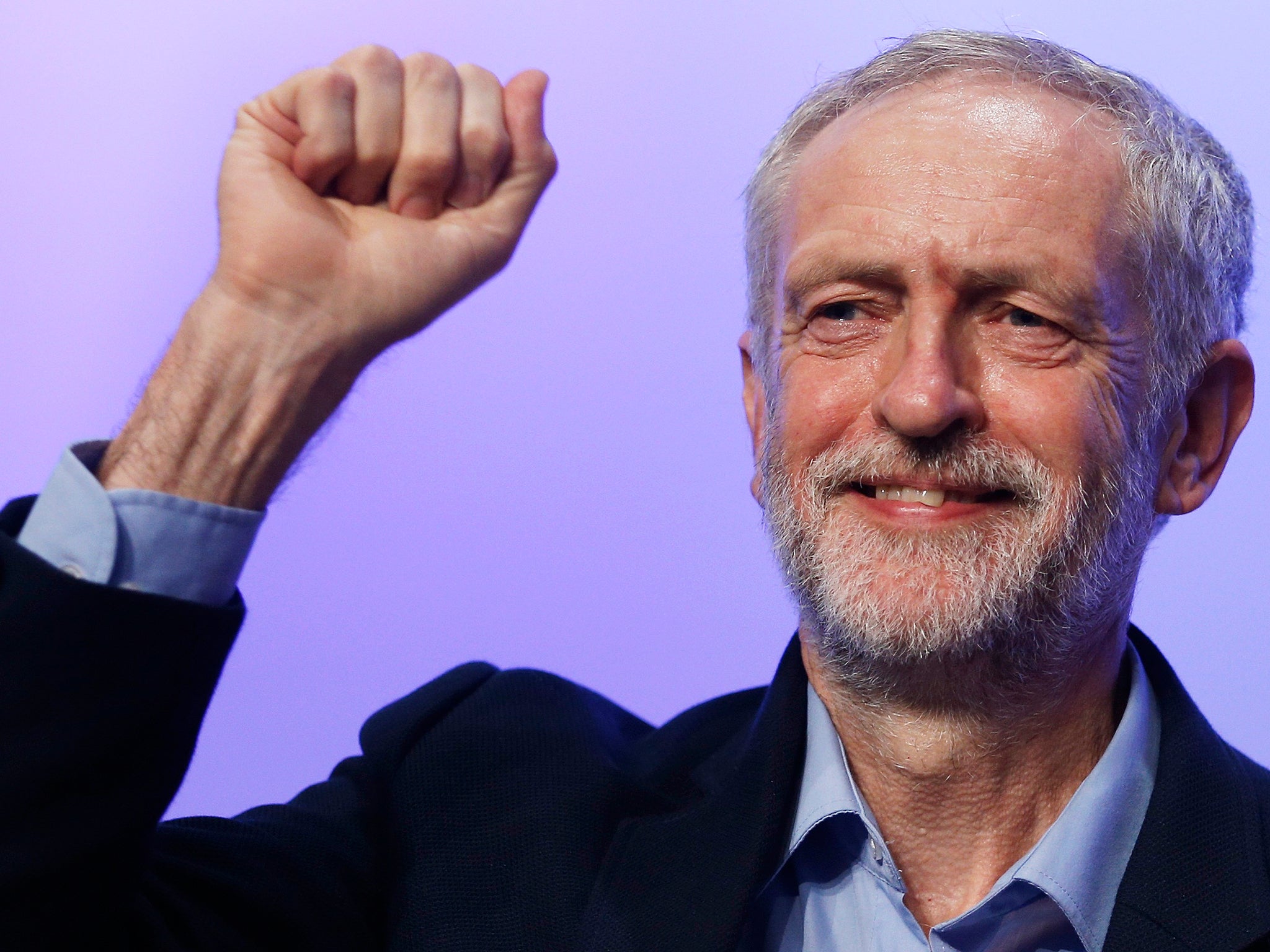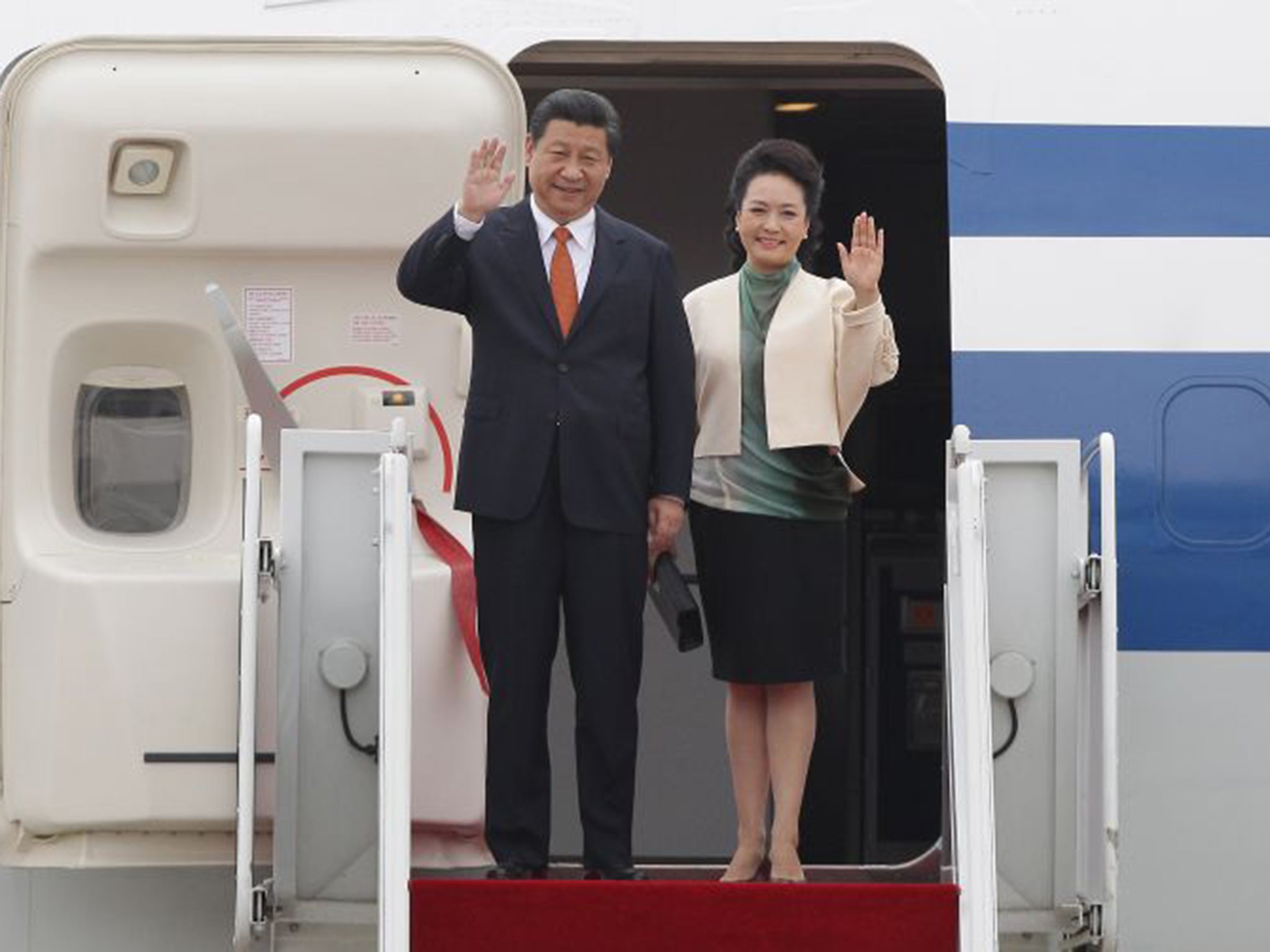Jeremy Corbyn to challenge Chinese President Xi Jinping on human rights in one-on-one meeting
Labour leader will raise case of detained Nobel-Prize winner Liu Xiaobo and call for release of human rights lawyers

Your support helps us to tell the story
From reproductive rights to climate change to Big Tech, The Independent is on the ground when the story is developing. Whether it's investigating the financials of Elon Musk's pro-Trump PAC or producing our latest documentary, 'The A Word', which shines a light on the American women fighting for reproductive rights, we know how important it is to parse out the facts from the messaging.
At such a critical moment in US history, we need reporters on the ground. Your donation allows us to keep sending journalists to speak to both sides of the story.
The Independent is trusted by Americans across the entire political spectrum. And unlike many other quality news outlets, we choose not to lock Americans out of our reporting and analysis with paywalls. We believe quality journalism should be available to everyone, paid for by those who can afford it.
Your support makes all the difference.Jeremy Corbyn will meet the Chinese President this week to raise the case of Liu Xiaobo, the only Nobel Prize-winner in the world under house arrest, and to call for the release of imprisoned human rights lawyers, The Independent on Sunday understands.
The Labour leader had threatened to use a white-tie state banquet on Tuesday evening to raise human rights concerns with President Xi Jinping, prompting British and Chinese officials to quickly arrange a one-to-one meeting.
It will be Mr Corbyn’s first official meeting with a head of state as Labour leader and is likely to take place at Buckingham Palace before the state banquet.
Officials feared that, by raising the issue at the formal event, Mr Corbyn would have brought the Queen into the controversy and risked offending the diplomatically sensitive Chinese delegation during the first visit to Britain by a Chinese leader for 10 years.
The visit is being seen as a victory for Mr Cameron, who offended the Chinese in 2012 by meeting the Dalai Lama. It follows a fence-mending visit to China last month by the Chancellor, George Osborne, during which he was praised by the Chinese for his “mild manner” on human rights.
In an interview with China Central Television, to be broadcast today, Mr Cameron reiterated that this was “something of a golden era” in UK-Chinese relations.
While Mr Cameron and President Xi plant an oak sapling together in the garden at Chequers and discuss the £105bn that China has said it is prepared to invest in the UK by 2025, human rights groups are expected to protest throughout the visit, amid accusations that Britain is “trading away” its reputation for supporting human rights.

During his two years in power, the Chinese leader has overseen repeated attacks on the country’s nascent civil society, including what Amnesty International UK describes as “widespread” use of torture and the arrest this summer of 245 lawyers and human-rights activists in an “unprecedented crackdown”.
At least 30 lawyers are still missing or in police custody after the raids, which started on 9 July when lawyer Wang Yi went missing after sending a text message to friends saying that her internet access had been cut and people were trying to break into her home.
President Xi has also overseen the continued detention of Mr Liu, who was detained after he was awarded the Nobel Peace prize in 2010. He is the only Nobel Prize-winner in detention anywhere in the world.
Dr Shao Jiang, a Chinese dissident who helped draft a list of demands for students marching towards Tiananmen Square, praised Jeremy Corbyn for committing to raise the two issues but called for British politicians to be “bold” in raising concerns over “widespread human-rights abuses” in China.
He said: “The real problem is that the Government here is putting trade before human rights. Britain enjoys cheap Chinese goods and Chinese investment but the price is paid by Chinese workers who have no right to strike and no right to organise.”
Dr Jiang spent 18 months in jail after the 1989 pro-democracy movement was crushed before escaping China in 1997. He said he hoped Mr Corbyn would raise this issue and the plight of “many thousands of faceless human-rights defenders” as well as high-profile cases, such as Mr Liu.
“China is in the middle of its most intense crackdown on human rights for some years, and that’s saying something,” said Allan Hogarth, head of policy at Amnesty International UK. “Jeremy Corbyn’s intervention is very welcome and David Cameron should do the same – he must not ignore the human rights of ordinary Chinese citizens in order to secure trade deals”
Mr Hogarth called for the British Government to stop “turning a blind eye” to the plight of China’s jailed lawyers, journalists and campaigners who have been locked up “simply because they have challenged” the Chinese authorities.
His comments come after the NGO delivered a 28,000-strong petition to Downing Street calling for Mr Cameron to personally raise the issue with the Chinese leader. No 10 has refused to be drawn on whether the Prime Minister will raise the issue.
The Foreign Office says that the UK doesn’t see a “choice” between investment for Britain and raising human rights issues and says ministers regularly raise concerns.
President Xi will also address UK-China business leaders during the three-day visit, during which he will stay at Buckingham Palace, amid reports that “substantial progress” has been made towards a final decision on the nuclear plant at Hinkley Point in Somerset.
On Saturday Downing Street had to play down fears about the plans for Chinese investment and the Government’s decision to guarantee the £2bn nuclear-power deal, amid warnings from security sources that it poses a threat to national security.
Join our commenting forum
Join thought-provoking conversations, follow other Independent readers and see their replies
Comments